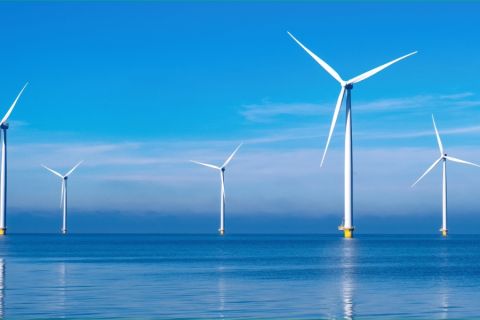
With about a week left until a referendum on whether Scotland remains part of the U.K. and governed from London, two oil majors have declared their support for staying with the union.
Scottish voters go to the polls next week. BP and Shell have laid their cards on the table, saying where they stand on the independence debate. This week BP chief executive Bob Dudley declared his company backs a U.K. that includes Scotland.
“BP has been in the U.K. North Sea for 50 years, and we hope to operate here for many years to come,” Dudley said in a new statement. “As a major investor in Scotland—now and into the future—BP believes that the future prospects for the North Sea are best served by maintaining the existing capacity and integrity of the United Kingdom.”
Shell's chief executive Ben van Beurden also has backed a U.K. with Scotland.
In a prepared statement sent to E&P, Shell said the comment made by van Beurden in March still stands: “We’d like to see Scotland remain part of the United Kingdom. Shell has a long history of involvement in the North Sea—and therefore in Scotland—and we have continued to invest heavily there.”
At an annual reception in London earlier this year van Beurden talked of his wish for Scotland to remain within the U.K. However when the U.K. cabinet was hosted in Aberdeen by Shell, Shell’s U.K. chairman Ed Daniels said the independence referendum was “a matter for Scottish people,” and that “it would be wrong” for Shell to intervene, BBC news reported at the time.
North Sea veteran Ian Wood, author of the Wood Review, also has stepped into the debate. He suggests industry revenue will substantially reduce by 2035, leaving a big hole in budget projections made by the Scotland’s pro-dependence lobby.
Shell also endorses sentiments expressed by Wood in his report.
“Shell believes that the Wood Review is a positive step for the North Sea oil and gas industry, and we strongly support its recommendations of developing a strategy to maximize the economic recovery of reserves remaining in the U.K. North Sea, and achieving greater collaboration between government and industry.
“Ian Wood is right in his technical assessment that the amount of remaining oil and gas that can be profitably extracted from the U.K. North Sea is a function of price and cost. As existing infrastructure gets older and output falls, costs will go up and tax receipts will come down,” van Beurden said. “Furthermore, much of the U.K. North Sea’s remaining oil and gas—which is yet to be discovered and developed—is in isolated or hard-to-reach areas, which are potentially uneconomic without sharing of existing infrastructure and improved tax incentives.”
Polls
Research on voting intentions by British survey group YouGov has pointed to changing opinion over whether Scotland should become independent. On Aug. 7, YouGov asked “Should Scotland be an independent country?” Results revealed 61% of those asked responded “no,” while 39% responded “yes.” But since then the vote has narrowed. YouGov’s Sept. 6 poll put the “no” vote at 52% and the “yes” vote at 48%.
Another YouGov poll on Sept. 11 put the “no” vote at 50%, “yes” at 45% and “don’t know” at 6%.
Oil and gas has long been a key issue in the Scottish independence debate, and Wood’s involvement has been significant. He has argued that there are 15 Bbbl to 16.5 Bbbl of recoverable oil reserves in the North Sea.
“Reserves are hydrocarbons which are technically and economically proven. To be classed as reserves, we have to know what is there and be certain it can be extracted in an affordable way,” Wood said during a media conference in Aberdeen this week as reported by the BBC. He went on to slate a report produced by group called N-56, linked to the pro-independence campaign, which suggested that there could be another 21 Bbbl of unconventional shale oil resources in the North Sea.
Wood’s report, published earlier this year, on maximizing economic recovery in the North Sea cited an estimated 12Bboe to 24 Bboe which could still be produced, based on figures from the U.K. Department of Energy and Climate Change. However, the report pointed out that this would largely depend on how well the U.K. manages development of remaining resources.
Conversely, the N56 study— the group takes its name from the global latitude and longitude co-ordinates of Scotland—suggested fracking techniques could be used to double the estimated recovery of North Sea oil to between 24 Bbbl and 45 Bbbl.
In a closely followed debate which has seen top London politicians, including Prime Minister David Cameron along with his coalition partner Nick Clegg and opposition leader Ed Miliband, fly to Scotland to garner support for keeping the U.K. united, pollsters have suggested the vote will be very close. Voters go the polls Sept. 18.
Recommended Reading
Guyana’s Stabroek Boosts Production as Chevron Watches, Waits
2024-04-25 - Chevron Corp.’s planned $53 billion acquisition of Hess Corp. could potentially close in 2025, but in the meantime, the California-based energy giant is in a “read only” mode as an Exxon Mobil-led consortium boosts Guyana production.
US Interior Department Releases Offshore Wind Lease Schedule
2024-04-24 - The U.S. Interior Department’s schedule includes up to a dozen lease sales through 2028 for offshore wind, compared to three for oil and gas lease sales through 2029.
Utah’s Ute Tribe Demands FTC Allow XCL-Altamont Deal
2024-04-24 - More than 90% of the Utah Ute tribe’s income is from energy development on its 4.5-million-acre reservation and the tribe says XCL Resources’ bid to buy Altamont Energy shouldn’t be blocked.
Mexico Presidential Hopeful Sheinbaum Emphasizes Energy Sovereignty
2024-04-24 - Claudia Sheinbaum, vying to becoming Mexico’s next president this summer, says she isn’t in favor of an absolute privatization of the energy sector but she isn’t against private investments either.
Venture Global Gets FERC Nod to Process Gas for LNG
2024-04-23 - Venture Global’s massive export terminal will change natural gas flows across the Gulf of Mexico but its Plaquemines LNG export terminal may still be years away from delivering LNG to long-term customers.





